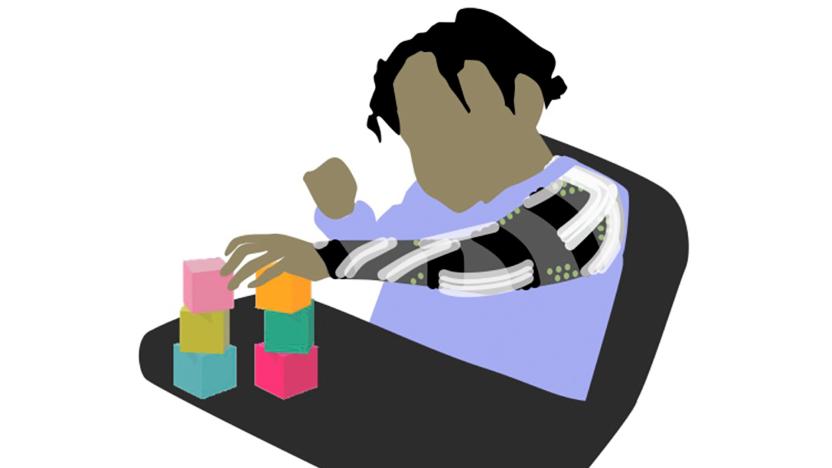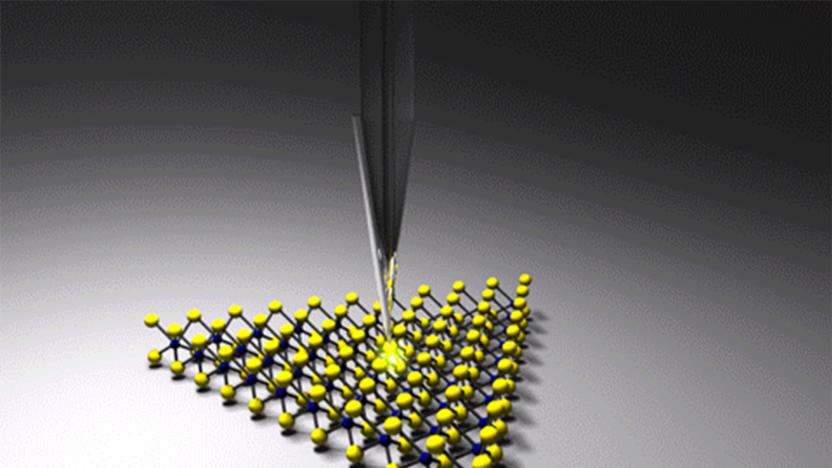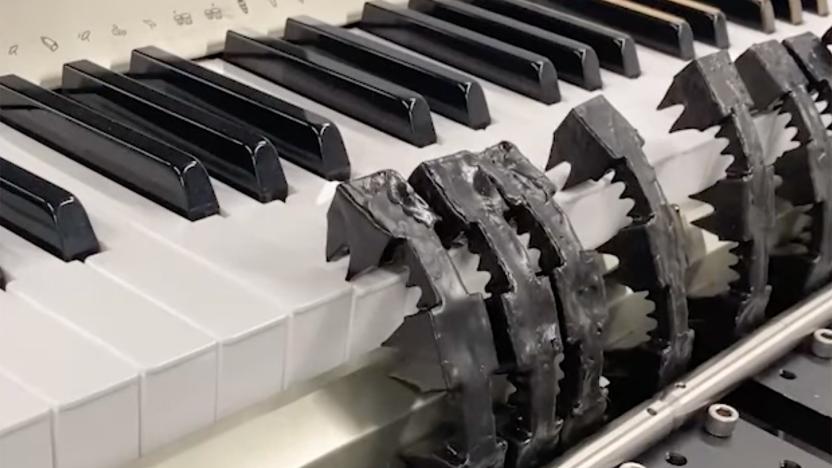UC Riverside
Latest

Robotic sleeves can provide arm control to kids with cerebral palsy
Scientists are building robotic sleeves that could offer arm control to children with cerebral palsy, not to mention others with mobility issues.

'Squeezed' light might produce breakthroughs in nano-sized electronics
A 'magic wand' squeezes light into a nano-sized point that could lead to breakthroughs in ultra-small devices.

Soft robot can play piano thanks to 'air-powered' memory
Scientists have built a soft robot with pneumatic memory that can play the piano without relying on conventional chips.

Researchers boost solar energy by tapping infrared light
Our sun blasts out over 50 percent of its energy as "near-infrared" light, but solar cells only harvest visible light. As a result, the best commercial panels only convert about 20 percent of solar energy to electricity. Researchers from UC Riverside have now figured out how to "upconvert" infrared energy into much more useful visible light, a process that could make solar panels up to 30 percent more efficient. To do it, the team combined semiconductors with organic molecules, resulting in a material that essentially helped them "reshape the solar spectrum," according to lead researcher Christopher Bardeen.

UC-Light project puts LEDs to work in communication networks
Yeah, mad scientists have been trying to get the public at large to pay attention to visible light communications for years now, but the gurus over at the University of California, Riverside think that the project they're involved in holds a special kind of promise. The Center for Ubiquitous Communication by Light (UC-Light) will be funded with $3.5 million from the Multicampus Research Program and Initiatives (MRPI) competition within the University of California system, and at its core, it's hoping to unearth a magical method for linking up all sorts of electronics (HDTVs, PDAs, information kiosks, PCs, etc.) via light. You know, so your refrigerator can tell your smartphone what groceries are needed during the next supermarket stop, and that massive billboard on I-95 can beam more information that you don't want right onto your handset. If all goes to plan (and California's budget problem solves itself), the work will begin in early 2010 and last five years, after which we fully anticipate "very low-cost communication and navigation systems [to be built] on existing lighting infrastructure." And fowl in every pot. And unicorns in every garage.[Thanks, Michael]


